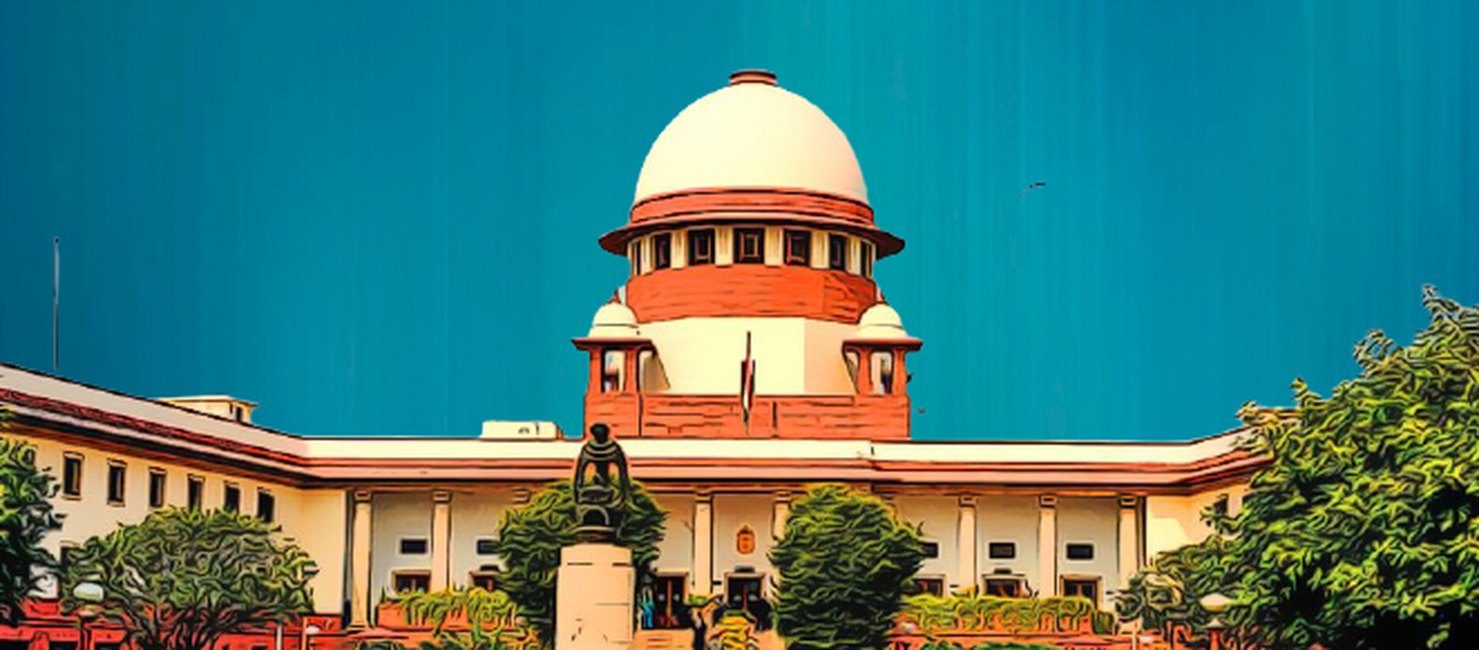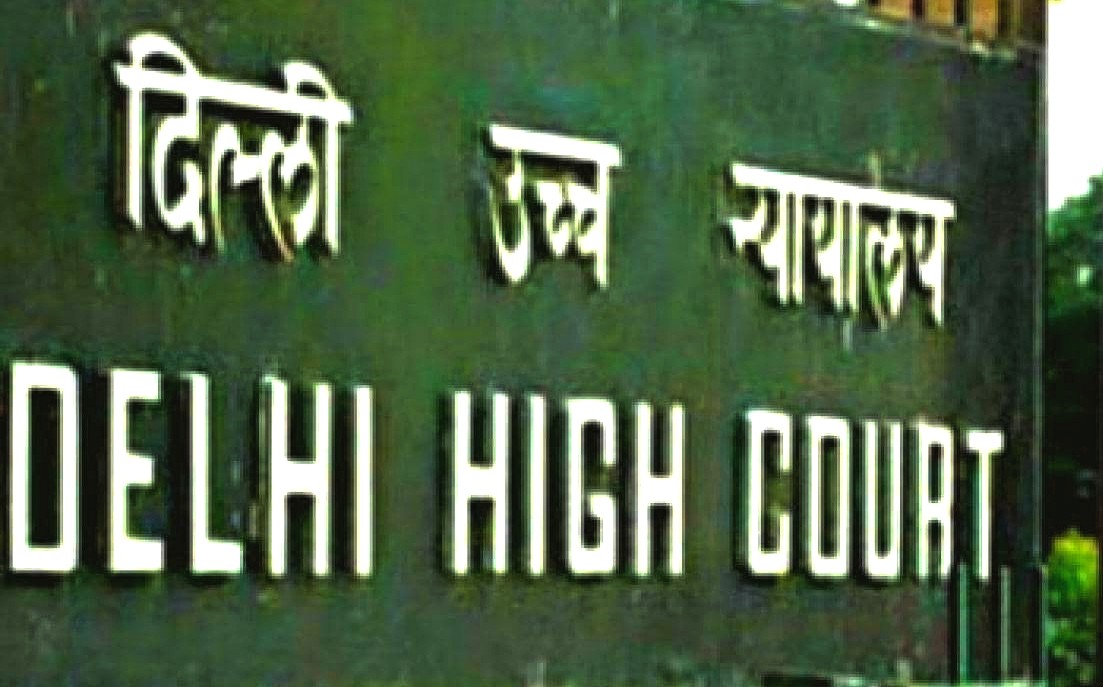‘We thus deprecate this practice of state machinery being misused for ulterior motives’:Top Court imposes Rs 5 lakh cost on father of woman Police Officer for harassing her husband by filing complaints under sec. 498A IPC
Justices Vikram Nath & Prashant Kumar Mishra [19-04-2024]

Read Order: PARTEEK BANSAL v. STATE OF RAJASTHAN & ORS[SC- CRIMINAL APPEAL NO. 2167 OF 2024]
Tulip Kanth
New Delhi, April 23, 2024: In a matrimonial dispute matter, where the father of a woman Police Officer filed various complaints against her husband and family members only with the motive to harass them, the Supreme Court has imposed a cost of Rs 5 lakh on him.
The appellant and respondent No.3 came in contact with each other in June, 2014 through the internet.The complainant (respondent No.2) who is the father of respondent No.3 had visited the appellant in Udaipur, who is a Chartered Accountant based in Hisar, for proposal of marriage of his daughter (respondent No.3) who was at that time posted as Deputy Superintendent of Police at Udaipur, Rajasthan.
In 2015, the marriage was solemnised at Udaipur. The respondent No.2 filed a complaint. The said complaint was registered at Police Station Hisar as an FIR under Section 498A read with Section 34 IPC. In the meantime, respondent No.2 submitted another complaint on 15.10.2015 i.e. five days after the first complaint on the same set of allegations as in the previous complaint. This complaint came to be registered under Section 498A/506 IPC etc.
In the first FIR along with the appellant other family members were also roped in. However, after further investigation, a Police Report under Section 173(2) Cr.P.C. was submitted in December, 2015 only against the appellant under Section 498A IPC. Based on the said Police Report, the Magistrate took cognizance and the trial proceeded. Thereafter, the appellant filed a petition under Section 482 Cr.P.C. before the Rajasthan High Court for quashing of the second FIR. By the impugned order, the High Court dismissed the said petition on the ground that the complaint at Udaipur was prior in point of time than the complaint in Hisar. The second ground was that the Rajasthan Police was not aware of the earlier proceedings/complaint before the Hisar Police and as such the Udaipur Police should be at liberty to investigate the said complaint made at Udaipur.
After the impugned order was passed, the Trial Court acquitted the appellant. The appeal before the Top Court challenged this judgment.
“Without going into these statutory provisions and the case laws relied upon by the parties, we are convinced that the impugned proceedings are nothing but an abuse of the process of law”, the Division Bench comprising Justice Vikram Nath & Justice Prashant Kumar Mishra said.
It was not denied by the respondent Nos. 2 and 3 that they did not lodge a complaint at Hisar. They also did not file an application withdrawing their complaint on the ground that it was wrongly filed here or that the said complaint may be transferred to Udaipur for investigation as the offence was committed at Udaipur. They allowed the investigating agency to continue to investigate in which their statements were also recorded.
“The respondent No.3 was a gazetted Police Officer at the relevant time and was also well aware of the laws, in particular the Cr.P.C. and the provisions thereto. Neither the complainant nor the victim entered the witness box before the Hisar Court allowing total wastage of the valuable time of the Court and the investigating agency. Merely because she was a Police Officer, she first managed to get an FIR lodged at Hisar through her father, and thereafter she moved to her hometown at Udaipur and got another complaint lodged by her father within a week”, it added.
The Bench also took into consideration the fact that the Complaint at Hisar was dated 10.10.2015, Complaint at Udaipur was dated 15.10.2015, FIR registered at Hisar was dated 17.10.2015 and the FIR registered at Udaipur was dated 01.11.2015. Hence, the admitted dates were relevant to upset the finding of the High Court that the complaint at Udaipur was prior in point of time.
Moreover, in the complaint lodged at Udaipur, the allegations were the same as in the complaint at Hisar and additionally it was stated in the complaint at Udaipur that the complainant had earlier lodged a complaint at Hisar. Thus, the investigating agency at Udaipur was well aware of the complaint on similar allegations being lodged at Hisar.
As per the Bench, the High Court again fell in error in observing that the Rajasthan Police was not aware about the earlier proceedings initiated at Hisar. “The High Court and the Rajasthan Police were expected to at least read the complaint carefully”, it added.
The Bench further observed, “In the facts and circumstances as recorded above, we are of the view that respondent Nos. 2 and 3 had been misusing their official position by lodging complaints one after the other. Further, their conduct of neither appearing before the Trial Court at Hisar nor withdrawing their complaint at Hisar, would show that their only intention was to harass the appellant by first making him face a trial at Hisar and then again at Udaipur.”
It was also noted that the appellant had been arrested and thereafter granted bail. In the complaint made at Hisar, there were allegations to the effect that when respondent No.2 visited the appellant at Hisar, he had made a demand of Rs. 50,00,000/- and also an Innova Car. Thus, the argument that no offence was committed in Hisar but only at Udaipur was also not correct.
“We thus deprecate this practice of state machinery being misused for ulterior motives and for causing harassment to the other side”, the Bench stated while allowing the appeal and quashing the impugned order passed by the High Court.
The Top Court also quashed the FIR and imposed cost of Rs 5 lakh. 50% of this amount has been asked to be transmitted in the account of the Supreme Court Legal Services Committee and the remaining 50% to the appellant.
Sign up for our weekly newsletter to stay up to date on our product, events featured blog, special offer and all of the exciting things that take place here at Legitquest.




Add a Comment